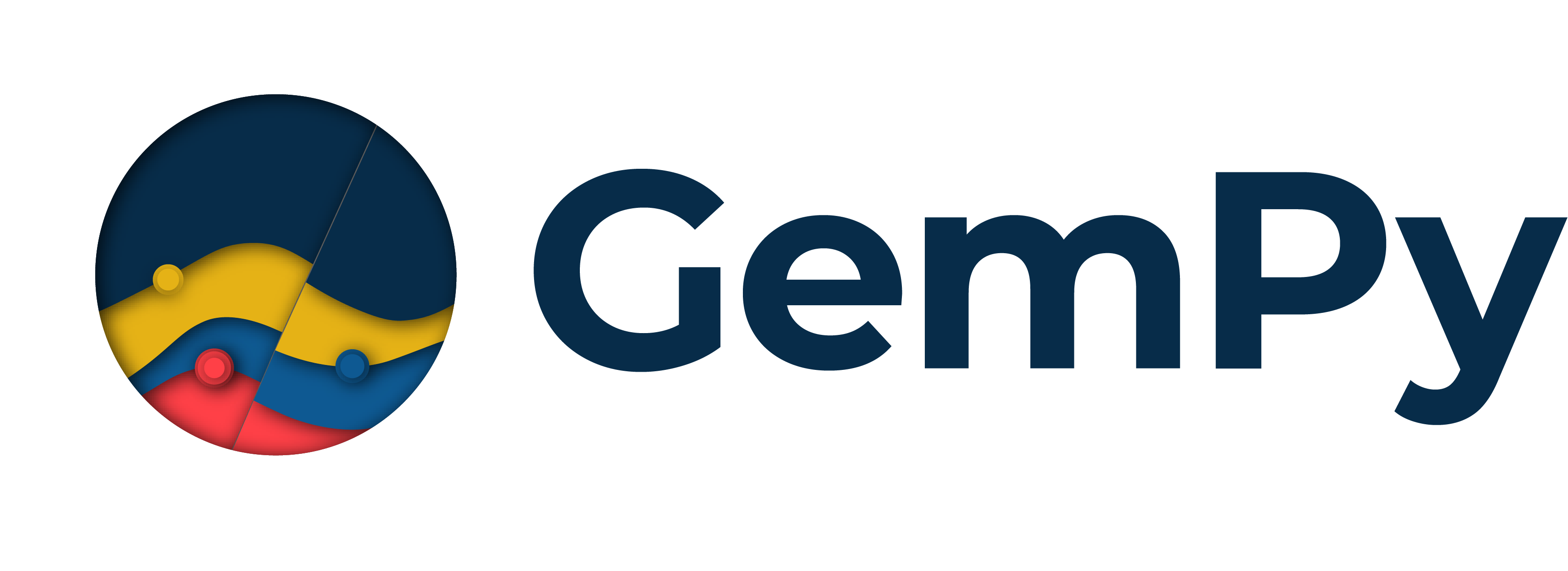import warnings
from typing import Union
import numpy as np
from numpy import ndarray
from gempy.API.io_API import read_surface_points, read_orientations
from gempy_engine.core.data import InterpolationOptions
from ..core.data.geo_model import GeoModel
from ..core.data.grid import Grid
from ..core.data.importer_helper import ImporterHelper
from ..core.data.orientations import OrientationsTable
from ..core.data.structural_frame import StructuralFrame
from ..core.data.surface_points import SurfacePointsTable
from ..optional_dependencies import require_pooch
[docs]
def create_geomodel(
*,
project_name: str = 'default_project',
extent: Union[list, ndarray] = None,
resolution: Union[list, ndarray] = None,
number_octree_levels: int = 1,
structural_frame: StructuralFrame = None,
importer_helper: ImporterHelper = None,
) -> GeoModel: # ? Do I need to pass pandas read kwargs?
"""
Creates a GeoModel instance.
This function initializes a GeoModel object, including its grid and interpolation options.
Args:
project_name (str, optional): The name of the project. Defaults to 'default_project'.
extent (Union[list, ndarray], optional): The 3D extent of the grid. Defaults to None.
resolution (Union[list, ndarray], optional): The resolution of the grid. Defaults to None.
number_octree_levels (int, optional): The number of octree levels for the dual contouring interpolation method. Defaults to 1.
structural_frame (StructuralFrame, optional): The structural frame of the GeoModel. Defaults to None.
importer_helper (ImporterHelper, optional): Helper object to import structural elements. Defaults to None.
Returns:
GeoModel: The initialized GeoModel object.
"""
grid: Grid = Grid(
extent=extent,
resolution=resolution or np.array([20, 20, 20])
)
interpolation_options: InterpolationOptions = InterpolationOptions(
range=5,
c_o=10,
dual_contouring=True,
number_octree_levels=number_octree_levels,
)
match (structural_frame, importer_helper):
case (None, None):
# ? For now my gut feeling is that is better to pass the structural frame explicitly
raise ValueError("Either structural_frame or importer_helper must be provided. You can use StructuralFrame.initialize_default_structure() to create a default structural frame.")
structural_frame = StructuralFrame.initialize_default_structure()
case (None, _):
structural_frame = _initialize_structural_frame(importer_helper)
case _:
pass
geo_model: GeoModel = GeoModel(
name=project_name,
structural_frame=structural_frame,
grid=grid,
interpolation_options=interpolation_options
)
return geo_model
def create_data_legacy(
*,
project_name: str = 'default_project',
extent: Union[list, ndarray] = None,
resolution: Union[list, ndarray] = None,
path_i: str = None,
path_o: str = None) -> GeoModel: # ? Do I need to pass pandas read kwargs?
warnings.warn("This method is deprecated. Use create_geomodel instead.", DeprecationWarning)
return create_geomodel(
project_name=project_name,
extent=extent,
resolution=resolution,
importer_helper=ImporterHelper(
path_to_surface_points=path_i,
path_to_orientations=path_o
)
)
def _initialize_structural_frame(importer_helper: ImporterHelper) -> StructuralFrame:
surface_points, orientations = _read_input_points(importer_helper)
return StructuralFrame.from_data_tables(surface_points, orientations)
def _read_input_points(importer_helper: ImporterHelper) -> (SurfacePointsTable, OrientationsTable):
orientations_file, surface_points_file = _fetch_data_with_pooch(
orientations_hash=importer_helper.hash_orientations,
orientations_path=importer_helper.path_to_orientations,
surface_points_hash=importer_helper.hash_surface_points,
surface_points_path=importer_helper.path_to_surface_points
)
surface_points: SurfacePointsTable = read_surface_points(
path=surface_points_file,
coord_x_name=importer_helper.coord_x_name,
coord_y_name=importer_helper.coord_y_name,
coord_z_name=importer_helper.coord_z_name,
surface_name=importer_helper.surface_name,
pandas_kwargs=importer_helper.pandas_reader_kwargs
)
orientations: OrientationsTable = read_orientations(
path=orientations_file,
coord_x_name=importer_helper.coord_x_name,
coord_y_name=importer_helper.coord_y_name,
coord_z_name=importer_helper.coord_z_name,
surface_name=importer_helper.surface_name,
gx_name=importer_helper.gx_name,
gy_name=importer_helper.gy_name,
gz_name=importer_helper.gz_name,
pandas_kwargs=importer_helper.pandas_reader_kwargs,
name_id_map=surface_points.name_id_map
)
return surface_points, orientations
def _fetch_data_with_pooch(orientations_hash, orientations_path, surface_points_hash, surface_points_path):
def is_url(url):
from urllib.parse import urlparse
try:
result = urlparse(url)
return all([result.scheme, result.netloc])
except ValueError:
return False
pooch = require_pooch() if is_url(surface_points_path) or is_url(orientations_path) else None
# * Fetch or define path for surface points
if is_url(surface_points_path):
surface_points_file = pooch.retrieve(
url=surface_points_path,
known_hash=surface_points_hash
)
print("Surface points hash: ", pooch.file_hash(surface_points_file))
else:
surface_points_file = surface_points_path
# * Fetch or define path for orientations
if is_url(orientations_path):
orientations_file = pooch.retrieve(
url=orientations_path,
known_hash=orientations_hash
)
print("Orientations hash: ", pooch.file_hash(orientations_file))
else:
orientations_file = orientations_path
return orientations_file, surface_points_file
